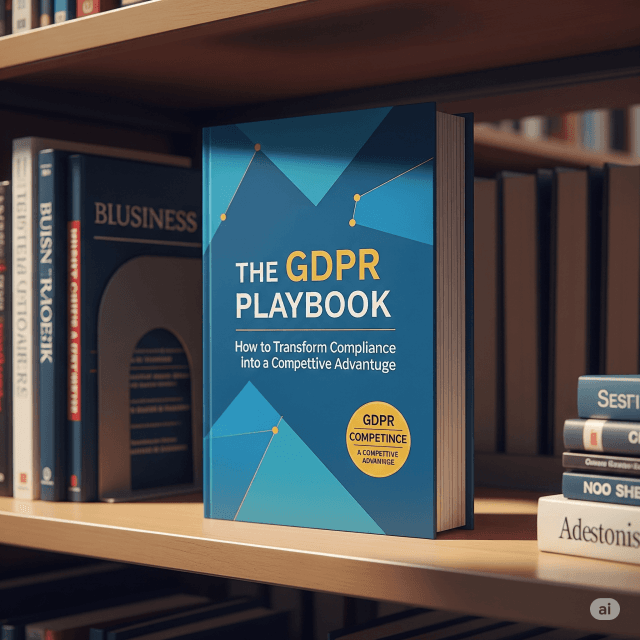In today’s digital landscape, data protection is more than just a regulatory requirement—it’s a key component of business strategy. The General Data Protection Regulation (GDPR), implemented in May 2018, aimed to give individuals control over their personal data while imposing strict guidelines on businesses handling such information. Navigating these waters can be challenging, but organizations that view GDPR compliance as more than just an obligation can leverage it as a competitive advantage. Here’s how to transform GDPR compliance into an asset.
Understanding the GDPR Landscape
The GDPR imposes several requirements on how organizations collect, store, process, and manage personal data. Key principles include:
- Consent: Clear and affirmative consent from individuals must be obtained before processing their data.
- Transparency: Organizations must be transparent about how and why they collect data.
- Data Minimization: Only necessary data should be collected and retained.
- Rights of Individuals: Individuals have rights to access, correct, and delete their personal data.
Non-compliance can lead to significant fines—up to 4% of global revenue or €20 million, whichever is higher—making adherence crucial. However, organizations can turn compliance into a strategic advantage by focusing on the following key areas.
Building Trust through Transparency
One of the primary benefits of GDPR compliance is the enhancement of trust between organizations and customers. By ensuring transparency in data practices, businesses can foster stronger relationships with their customers.
Practical Steps:
- Clear Privacy Notices: Update privacy policies to clearly outline data collection, usage, and sharing practices.
- User-Friendly Processes: Simplify consent mechanisms and provide individuals with easy access to their data.
By showing customers that their data is handled responsibly and transparently, organizations can differentiate themselves in a crowded marketplace.
Enhancing Data Security
GDPR emphasizes the importance of data security, mandating that organizations take appropriate measures to protect personal data. Investing in robust security measures not only reduces the likelihood of data breaches but also positions a company as a reliable steward of customer information.
Practical Steps:
- Regular Audits: Conduct audits to identify vulnerabilities and enhance data security.
- Training Employees: Offer regular training sessions to educate employees on data protection best practices and the importance of compliance.
Organizations that prioritize data security are likely to gain a competitive edge by attracting more customers who prioritize data safety.
Data-Driven Decision Making
Compliance with GDPR often necessitates a more disciplined approach to data management. By improving data governance and operational efficiency, organizations can harness data to make informed decisions, leading to better strategic outcomes.
Practical Steps:
- Data Inventory: Perform a comprehensive data audit to show what data is collected, processed, and stored.
- Utilize Analytics: Use data analytics to derive insights that drive marketing strategies or product development.
By leveraging data responsibly, organizations can create more meaningful customer experiences while maintaining compliance with regulatory standards.
Innovation Through Compliance
Seeing GDPR as a catalyst for innovation can propel organizations ahead of their competitors. Embracing data protection as a foundational element in product development and customer interaction can create opportunities for new offerings.
Practical Steps:
- Privacy by Design: Integrate privacy considerations into product development from the outset.
- Customer-Centric Solutions: Design services that not only comply with GDPR but also enhance user experience.
Innovative approaches to compliance can lead to unique products or services that disrupt markets and give companies a distinct advantage.
Competitive Branding and Marketing
Data protection is increasingly becoming a marketing point for businesses. By prominently showcasing adherence to GDPR, organizations can position themselves as leaders in ethics and consumer rights.
Practical Steps:
- Highlight Compliance: Utilize marketing campaigns to promote GDPR compliance and data safety practices.
- Leverage Certifications: Obtain third-party certifications in data privacy to add credibility.
In a marketplace where consumers are becoming more aware of data privacy issues, this commitment can provide a significant branding advantage.
Conclusion
Transforming GDPR compliance into a competitive advantage requires a strategic approach. By prioritizing transparency, enhancing data security, embracing data-driven decision-making, fostering innovation, and effectively marketing compliance, organizations can turn regulatory requirements into unique selling propositions. The GDPR Playbook isn’t just about avoiding fines; it’s an opportunity to build trust, enhance brand loyalty, and ultimately drive business growth in the digital age. Embracing this mindset can position organizations not only as compliant operators but as leaders in the evolving landscape of data protection.









